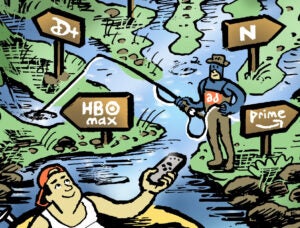 “The Sell-Sider” is a column written by the sell-side of the digital media community.
“The Sell-Sider” is a column written by the sell-side of the digital media community.
Today’s column is written by Jim Spanfeller, CEO, Spanfeller Media Group, a new age media company.
There have been some recent musings on BuzzFeed about what would happen to publisher traffic if Facebook went the way of MySpace. Unlikely as this is in the near term (a fact that the folks at BuzzFeed readily admit), the question does prompt some basic but important answers.
To give the fine people at BuzzFeed their proper due, their primary argument is that Google’s position as the dominant traffic driver on the Internet has slowly but surely given way to Facebook (although some would say these trends have been overstated due to “dark” Google). But now Facebook is seeing some declining numbers in both users and time spent, begging the question “What happens if Facebook becomes less of a traffic engine for content sites?”
Well, in the aggregate…nothing. These sites facilitate for what people want to do in the first place. One might even argue that, on balance, their efforts to help with content discovery are at the core of their value to end-users. In the case of Google, of course, this is without question.
So if a key discovery tool is eliminated, or gets diminished in some way, it’s unlikely to dull end-users’ demand for content that informs, inspires or entertains them. And it’s highly probable that end-users will simply find other ways to scratch this itch. All things considered, content discovery may be one of the key drivers of success for just about any platform solution on the Web. Ease of use and ubiquity are extremely important factors here, but only in the pursuit of satisfying this core human need.
We’ve taken a long road back to the fundamental point that, as Bill Gates wrote back in 1996, “Content is King.” Kenny Lerer of Lerer Ventures recently said words to this effect at an industry conference. He added that when a medium is not fully built out, the process of discovery can take precedence. Once a level of maturity is achieved, however, content returns to center stage.
We are now at a moment – or certainly near a moment – when the core building blocks of the digital ecosystem have, fundamentally, been put in place. Perhaps we will see adjustments or tweaks to this foundation in the future, but the general concepts are there. Thus, content becomes the key driver for attention and engagement. And only the very best services which help people discover that content will be rewarded.
By the same token, only the best content will win real traffic and engagement. Steadily, the advantages of SEO excellence and social integration will diminish. Everyone will stand on equal footing and, as such, the content itself will have to stand on its own.
On the face of it, these are simple ideas. But when you consider their implications, they’re bound to impact all sorts of players in a profound way. I’m not only talking about the content creators and platform builders but also the marketers and their agents, who use Web interactions to communicate messages about their products or services.
In many ways, some underlying principles of the analog world will move back into focus (such as entertaining and inspiring advertising, trust and respect for content creators, etc.). And yet we will also see many other principles that are new, or will be new, to these disciplines. We will still glean advantages and challenges from multimedia, real-time feedback, fragmentation, and much more. What’s old is new again…but still meaningfully different.
Follow Jim Spanfeller (@JimSpanfeller) and AdExchanger (@adexchanger) on Twitter.













